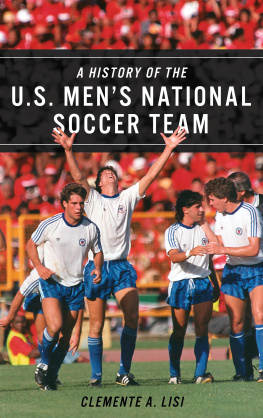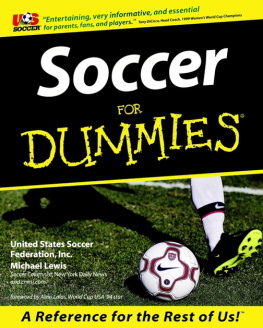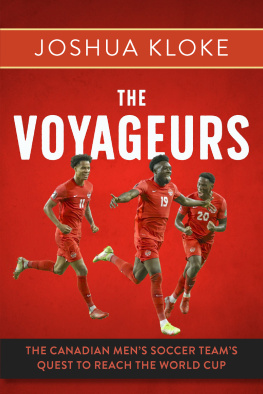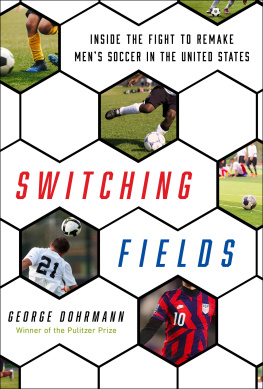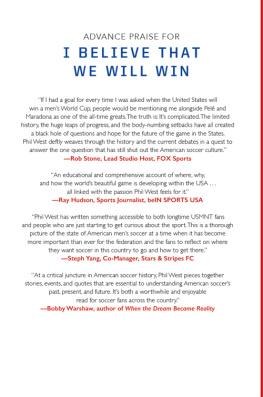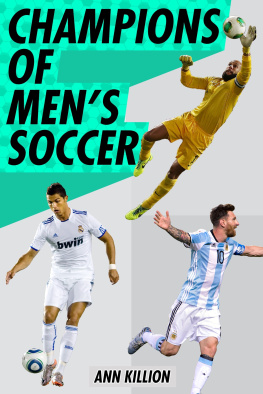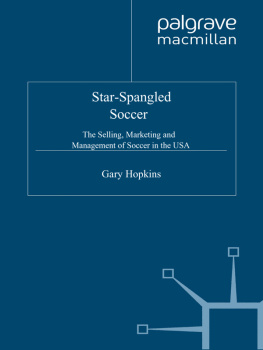M ost coaches learn sooner or later that you live or die with your last result. I was on the sideline for some of the best moments in the history of US soccer, like when we beat Mexico to advance to play Germany in the quarterfinals of the 2002 World Cup in South Korea and Japan. That was as far as a US side has ever advanced in the worlds greatest sporting event, and really, I thought we outplayed Germany that day. I was also on the sideline for one of the low points in the history of US soccer, our shocking loss to Trinidad and Tobago in October 2017. That 21 defeat meant that we failed to qualify for the 2018 World Cup in Russia, something the United States had done every four years going back to 1986. We failed that day, and I failed in my mission to pick up the pieces when I was hired in the middle of the qualifying process. I knew when I took the job, in late November 2016, that we had a steep road ahead of us if we were going to pull it off, but if I had it all to do over again, Id take the job again in a second. Even though people dont want to hear it, I dont think that, given the limited time I had, there is much I would do differently, either.
I felt terrible after the Trinidad loss, as I think everyone in US soccer did. What bothered me the most wasnt the usual Monday-morning quarterbacking and self-righteous indignation, some of it directed at US soccer in general, much of it aimed at me personally. You expect that stuff; theres value in some of it, and you just tune out the rest. What made me sick was the knowledge that our players would all be denied the experience of playing for their country in Russia on the greatest stage in sport. The World Cup in Russia could have been and should have been the true coming-out party for our young star Christian Pulisic, who, as I said on a CBS 60 Minutes segment, just might be our first true American soccer superstar. Christian was the best player for us in World Cup qualifying and continued to develop at an impressive rate. In 2018 in Russia, he would have been a player to watch. I felt so bad knowing Christian would be denied that. Veteran players like Tim Howard and Clint Dempsey, huge figures in bringing US soccer forward, would have to sit out the World Cup too, along with our team captain, Michael Bradley, along with every member of the squad. A lot of these guys will never get another shot at a World Cup and that might even include Michael, who was one of our better players in qualifying behind Christianhell be thirty-five by the time the 2022 World Cup in Qatar rolls around, and that might be pushing it. I also felt terrible for soccer fans in this country. We usually have one of the largest group of supporters at the World Cup, and missing out was a real blow to them.
But there are also positives. For a start, the devastating result forces a wholesale evaluation of the state of soccer in this country, and it has been much needed for a while. I hope that this book will be seen as part of the process by which we work out what went wrong and what we need to do to fix the problems. Weve come so far since I first started coaching soccer more than forty years ago, and I hope in these pages to tell enough stories and share enough experiences from those forty years to give a sense of just how far soccer has come in this countryand how honored Ive been to have played a role in that progress. One example is the fact that millions of Americans, including me, cared enough about soccer to feel pained that our great country will not be represented in Russia.
One of the key problems with soccer in the United States right now is the inability to make a distinction between making money and developing the sport. Weve pretended that the two goals are the same, when in fact theyre only somewhat related. For years the challenge seemed to be to find a way to have a viable North American professional soccer league, which was rightly seen as the foundation for continuing to move soccer forward in the United States. People were understandably haunted by the memory of the North American Soccer League, launched in 1968 and featuring the likes of Pel and Franz Beckenbauer (and, if Id agreed to a contract, a young backup goalkeeper named Bruce Arena), a league that drew millions of fans but which ultimately folded in 1984. Fast forward to Major League Soccer, which was founded in 1996, and which found itself in financial trouble as early as 1999. That was the year when MLS hired as its commissioner Don Garber, whose background was in NFL marketing, not soccer.
Don has done a good job running Major League Soccer as a business. The league keeps expanding, its on firm financial footing, many clubs have built fine, soccer-only stadiums, and fans around the country can look forward to a steadily improving level of play. My 1997 and 1998 DC United teams were as good as any teams in the history of the league, but overall the level of play is clearly betterand will continue to improve.
The question is: are we headed in the right direction? Is the sole purpose of MLS to make money, to build itself into a fabulous sports business like the NFL, or is it also to provide the foundation for the United States to build itself into a true world soccer power? I think most fans of US soccer would see it as both. Its time to do far more to give young players a way forward, not just at the youth level, but at the young professional level. The whole relationship between the United States Soccer Federation (US Soccer for short) and Major League Soccer needs to be reworked and rethought.
By the time you read these words, the US Soccer Federation will have a new president, but Im afraid I have to say that both US Soccer and Major League Soccer need leadership that is more focused on the sport. Its great to establish a strong financial footing, and MLS has done that, but the decision makers at both the federation and MLS need to become much more acquainted with the technical side of the sport, that is, the sport of soccer itself, not soccer just as a business.
If you want to be successful on the field of play, that needs to carry over into every decision you make. Every single thing you do should be done with an eye on how to give your teamor sportan edge. If that means hosting a World Cup qualifying game against Mexico in Alaska, then maybe you give that some thought. It makes me think of something David Beckham said for this book. All great players need a ruthless streak that runs through their veins, and all great managers need thatand thats what Bruce has as well, he said. Hes right! To build a championship team you have to have an edge, an intensity, that may rub some people the wrong way; youre not always going to win friends, but people will respect you for it. Our soccer leadership in this country needs more of an edge. It needs to be on a mission, focused on making the hard choices that help get our sport over the top competitively.
After our setback in Trinidad, I was accused of not talking enough about the fact that the sky was falling. I called the loss a blemish, which didnt go over well. I think people wanted to see me weeping or screaming. Believe me, I felt like it, but you know what else I was feeling? A sense of: Welcome to my world! Soccer in our country has had major issues for years. If we had equalized in the second half in Trinidad, gotten our one point and then moved on to the World Cup, no one would have been focused on those issuestheyd have been swept under the rug again. We were in a precarious position all through qualifying, and that caught up with us. Blame is not the issue. Im more than comfortable taking the fall for failing to qualify for the World Cup. But who really cares about blame? We should care about the future. We should care about making real progress toward fielding a very competitive team in the World Cup that can rise to the challenge to hold up that trophy.



